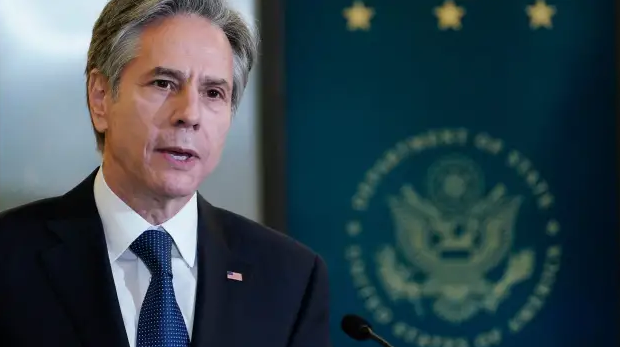China’s decision this week to slap several major U.S. defense firms with penalizing trade measures is being viewed as a “shot across the bow” ahead of President-elect Trump’s inauguration.
The move — targeting defense contractors Raytheon, Boeing, General Dynamics and Lockheed Martin — adds to U.S.-China tensions heading into Trump’s second term, though experts say it’s unlikely to greatly affect bottom lines.
But it could be a sign of a brewing tit-for-tat as the two superpowers jockey for economic and military leverage.
Firms that are primarily weapons companies, including Lockheed Martin, General Dynamics and Raytheon, already do little business with China given U.S. law bars the sale of all military items to Beijing unless the sitting president waives the ban.
While such companies have non-weapons-related parts, it’s not central to the business, making China’s recent sanctions mostly symbolic, according to Bill Reinsch, a former Commerce Department official and now the Scholl chair in international business at the Center for Strategic and International Studies, a Washington-based think tank.
“I think that’s why they’re doing it, it’s a shot across the bow,” Reinsch told The Hill. “These are things that are designed to remind the current administration and the next one that they have a lot of influence on supply chains, and they have a lot of influence on the global economy, in part, by virtue of their interaction with us.”
Beijing last week added 28 companies to an export control list to “safeguard national security and interests,” and it banned the export of items that serve both civilian and military situations, according to China’s Ministry of Commerce.
It also added 10 companies to what it calls an “Unreliable Entities List,” including Lockheed Martin Missiles and Fire Control, Raytheon/Lockheed Martin Javelin Joint Venture, and General Dynamics Ordnance and Tactical Systems for “participating in selling of arms to Taiwan.”
The 10 companies are barred from all import and export activities related to China and from making new investments in the country, and senior executives of the companies will be denied work permits, the ministry said.
Raytheon’s parent company RTX declined to comment on the Chinese penalties, while Boeing and General Dynamics did not respond.
In a statement, a Lockheed Martin spokesperson told The Hill that the firm “closely adheres to United States government policy with regard to conducting business with foreign governments.”
Beijing has increasingly become more aggressive toward American companies as Trump, a frequent critic of China, is set to enter his second term on Jan. 20. Trump has on numerous occasions promised to impose new sanctions and tariffs on the country.
In late November, Trump pledged to impose new tariffs on goods from Canada, Mexico and China through an executive order on the first day of his second term. The order, if executed, would add 10 percent to the current tariffs on Chinese products.
Beijing has already banned the export of rare earth minerals to the United States and announced an investigation into American computer chip company Nvidia — part of a back-and-forth economic retaliation campaign between the two countries. The tit-for-tat began during Trump’s first term after he hit China with a series of tariffs and trade restrictions.
The Biden administration added to those penalties on Chinese companies, most recently in early December, when it added more than 100 companies to a restricted trade list. The move was an attempt to limit Beijing’s ability to develop its own advanced chips for military equipment and artificial intelligence.
Sanctions or the threat of them are frequently used to punish countries for what another nation views as bad behavior or to pressure an enemy without using military force, an often effective policy tool.
“This is a pattern that we have been seeing for a little less than a decade now,” said Yun Sun, the director of the China program at the Stimson Center in Washington.
She said that while the specific branches of the U.S. defense companies affected in China’s latest round of retaliation do not have much operation in the country to begin with, sanctioning them shows that China is retaliating in a symbolic way.
“There will be more sanctions against U.S. firms for arms sales to Taiwan down the road,” she predicted, but she added that their effects will be limited due to their limited or nonexistent operation in China.
China has made no secret of its desire to bring Taiwan under its control. Beijing sees the independent island as part of its territory and has stepped up its military presence around the island following the election of Taiwanese President Lai Ching-te in May.
The United States maintains a “one China” policy that takes no stand on the issue, though Washington supplies Taiwan with weapons and other military equipment, to the ire of Beijing.
The sanctions on the U.S. defense firms appear to “send a signal that they could cripple us if they wanted to be a lot tougher,” Reinsch said.
https://thehill.com/policy/defense/5068125-china-fires-shot-across-trumps-bow-with-defense-sanctions/
